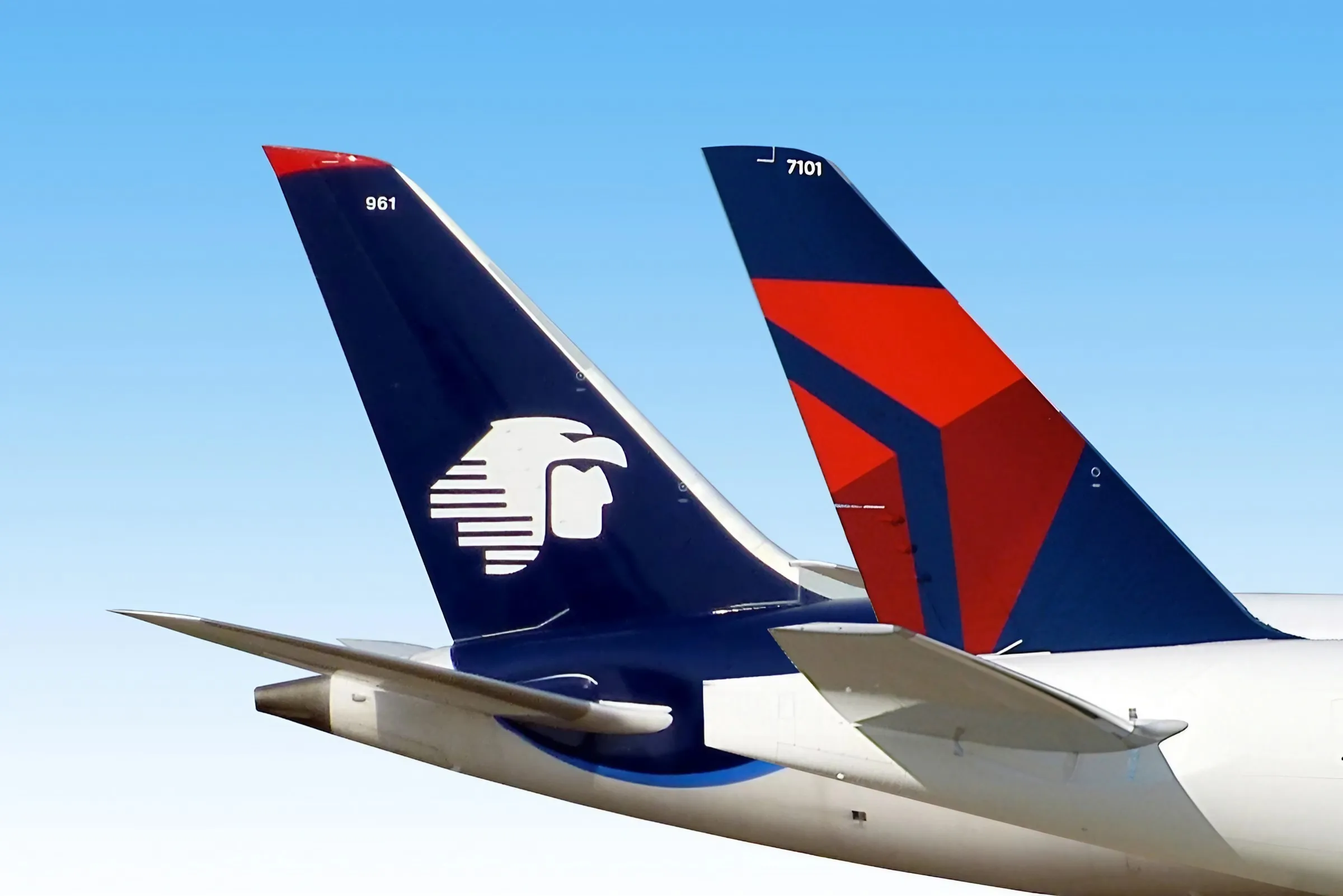Washington, D.C. — The U.S. Department of Transportation (DOT) has issued a Final Order terminating the longstanding joint venture between Delta Air Lines (DL) and Aeromexico (AM), stripping the carriers of their antitrust immunity (ATI) effective January 1, 2026.
The move brings to a close nearly a decade of regulatory review and reflects DOT’s growing concern over Mexico’s aviation policies, which the Department determined had created anticompetitive distortions harmful to consumers, competitors, and the broader U.S.–Mexico aviation market.
From Approval to Termination: A Brief History
In December 2016, DOT approved the Delta–Aeromexico alliance, granting ATI to allow the carriers to coordinate pricing, capacity, network planning, and frequent flyer programs. At the time, the Department touted potential benefits such as broader connectivity between the U.S. and Mexico, subject to pro-consumer conditions. These included slot divestitures at Mexico City (MEX) and New York–JFK, as well as a five-year sunset provision to allow periodic review.
Delta and Aeromexico accepted those conditions, launching one of the most integrated transborder partnerships in the Americas. The joint venture became a cornerstone of connectivity between U.S. and Mexican markets, with Delta eventually acquiring a 20 percent stake in Aeromexico.
Why DOT Pulled the Plug
In its September 2025 Final Order, DOT concluded that conditions in the U.S.–Mexico aviation market had deteriorated to the point where continuation of ATI was no longer justified. The Department cited:
- Government of Mexico (GoM) interventions included the confiscation of slots at MEX, the prohibition of all-cargo operations at Benito Juárez International Airport, and a non-transparent slot allocation system that favored Aeromexico.
- Distortions in competition: reduced market entry opportunities, higher barriers for U.S. carriers, and advantages for Delta/Aeromexico that could lead to higher fares, reduced innovation, and capacity restrictions.
- Cargo market concerns: Aeromexico and Delta’s ability to coordinate cargo operations at MEX while all-cargo carriers were displaced, resulting in what DOT deemed an “artificial reduction in competition.”
The DOT emphasized that immunized joint ventures require a liberalized, pro-competitive regulatory framework—commonly referred to as Open Skies. Mexico’s repeated violations of the 2015 U.S.–Mexico Air Transport Agreement, according to DOT, undermined that foundation.
Industry Pushback
Delta and Aeromexico objected strongly, warning that unwinding their partnership could jeopardize:
- Up to US$800 million in annual consumer benefits
- Nearly 4,000 U.S. jobs
- More than US$310 million in U.S. GDP contributions
- Dozens of U.S.–Mexico routes, particularly those reliant on joint scheduling efficiencies
They argued the joint venture had generated broad economic and tourism benefits. They claimed DOT’s decision unfairly penalized a U.S. company and a Mexican airline with significant U.S. ownership, while potentially strengthening Mexico’s state-backed Mexicana.
Other stakeholders weighed in:
- American Airlines (AA) praised DOT’s “decisive actions,” citing the need for a fair competitive framework.
- United Airlines (UA) stressed that MEX conditions are distinct from congestion challenges at other global hubs.
- Allegiant Air (G4) and Viva Aerobus (BV), pursuing their own ATI request, voiced concern that DOT’s delay in evaluating their alliance was anticompetitive.
- DOJ Antitrust Division supported DOT’s decision, warning that granting immunity in a distorted market undermines competition.
What Happens Next
While the Final Order ends ATI, DOT noted that Delta and Aeromexico still have “considerable flexibility” to cooperate through traditional code-sharing, frequent flyer coordination, and other commercial arrangements—albeit without immunity from U.S. antitrust laws.
DOT left the door open for future reconsideration, stating that if Mexico demonstrates compliance with its bilateral obligations and restores a competitive regulatory environment, the Department could reassess.
For now, however, the DL–AM partnership enters a new era—one without the protections and privileges of antitrust immunity.




